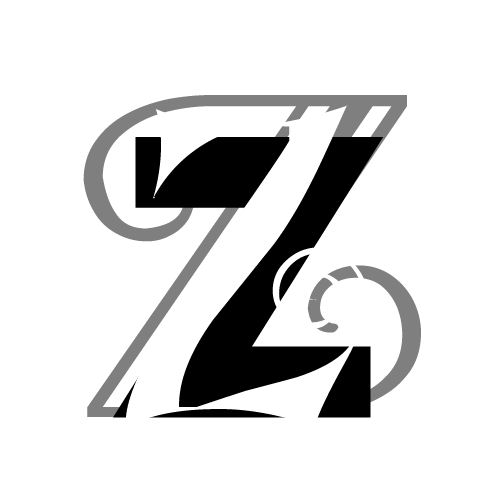

Amanda C. Davis
Part of me is Rabbit (Sylvilagus floridanus), an eastern cottontail, a hardy and vigorous species, adaptable, fast-breeding, an important component of many proven and theoretical ecosystems. It's not a very big piece of me. Just a mass inside my torso, nourished by my adolescent Homo sapiens body. But it's the piece of me that matters the most. There are many thousands of people on this ship, but I'm the last of Rabbit.
Dr. Ñahui has been checking on Rabbit since I was a baby. Once a month, for the past twelve years, she has slipped the long slim needle through me into the mass that is Rabbit. She tests it against the database to be sure it's still Rabbit, that it hasn't changed or taken on bits of me by mistake. We trust the database, she has told me, but flesh is better. She likes redundancy. Today, for example, she tests Rabbit twice.
Then she sends me to Dr. Rabemananjara.
I've never talked to Dr. Rabemananjara before; he treats humans. Typically humans much older than me, I recall. He doesn't have much to say but becomes very busy with me. When he leaves, I itch behind my ear the way I was told Rabbits do. I taught myself these twitchy mannerisms. They're not innate. They earn me derision. But they feel natural—maybe because I want them to.
When Dr. Rabemananjara returns, Dr. Ñahui is with him.
She says, “Please stay seated.”
He says, “Listen closely. You have to make a decision. Soon, before someone else makes it for you.”
Dr. Ñahui begins to speak, hesitates, then says, “For both of you.”
I am still, but I tremble. I could bolt at any moment.
Dr. Rabemananjara begins talking. Rabbit is fine. But the flesh of me that touches Rabbit has gone wild. Masses. Tumors. They might not be Rabbit's fault. I put a hand on my stomach but I can't feel the cancer. There's quite a bit of it inside, they tell me. Much more of it than there is Rabbit. But the human cancer and Rabbit are too close. To remove it, they must remove Rabbit, and there is nowhere else for Rabbit to go.
My eyes dart between doctors. They are somber pillars of agreement.
I ask, “How long until—” and in words above my education I describe the process of preparing an infant Homo sapiens to incubate a mass of Rabbit.
They say six months.
I ask, “How long until—” we will have waited too long and I am sick, terribly sick, too sick to save.
They say three months.
We go silent, counting. I cannot make the numbers come out so that both Rabbit and I survive. I have trouble solving for a value that will save even one of us.
Dr. Rabemananjara tells me my best chance is to act now. Our future requires human beings, he emphasizes. He is willing to perform an emergency surgery and corrupt my records so he can tell everyone he had no idea I contained Rabbit until he extracted it along with the cancer.
I put my other hand on my stomach. My heart flutters the way Rabbit's heart used to flutter when cornered. They talk about that in books. It might even be in the database. But flesh is better.
Dr. Ñahui says she knows of an infant girl of similar genetic makeup to me, older than she would prefer, but someone she could prime to carry Rabbit for me. For us. The infant is so similar to me (“like a sister, that close”) that the process might only take five months. Dr. Rabemananjara adds that this sort of thing (“this sort of thing,” what he swims among but that I have never seen) is highly variable. Treatment might be possible as late as four months from now.
They are offering me hope from both directions, but their hope cannot stretch far enough to meet.
Dr. Ñahui, who monitors fifty-six other incubators like me, whose purpose on the ship is to deliver the hope of a complete network of life wherever we plant it, whose life's work has been the care of Rabbit, says, softly, “We need human beings.”
I get down from the table.
I say, “But we only have one Rabbit.”
The halls are full of human beings and I sniff like Rabbit would: cautiously, certainly not to hold back tears. Rabbit is very cautious. Rabbit preserves itself. My bunkroom is full of other kids carrying other little bits of the species we left behind. When I say their names, my mind says their other names: Elephant. Beetle. Dolphin. Hawk. Rat. I've studied the ecosystem charts, the proven and the theoretical. I know we need them all.
I lie on my bunk and wonder how long they'll let me sleep there, until they figure out something is wrong with me.
“Ai, Rabbit,” says the boy I know as Worm. “Are you okay?”
I fold my hands over my stomach. It still trembles, but I realize that while Rabbit preserves itself, Homo sapiens, unlike all other species, defends. The 99.7% of me that is Homo sapiens was strong enough to leave Earth and take almost everything else with it. Rabbit is tricky but vulnerable; I am tough. And Rabbit is surrounded by me.
I close my eyes and imagine I am crouching in a nest of grass taller than my ears. Then I imagine I am the grass, cradling a living, breathing, soft, miraculous Rabbit.
“I'm okay,” I say.
And Rabbit will be fine.
Z is for Zoo
